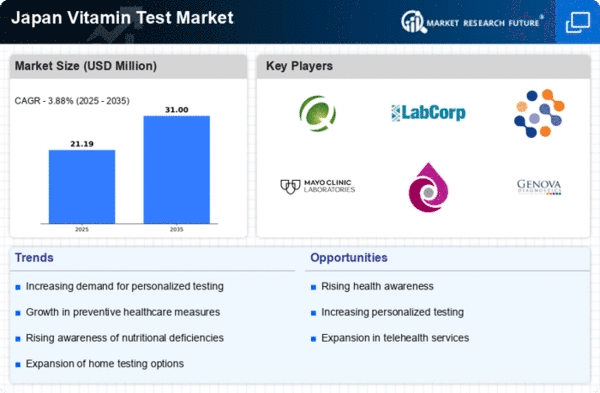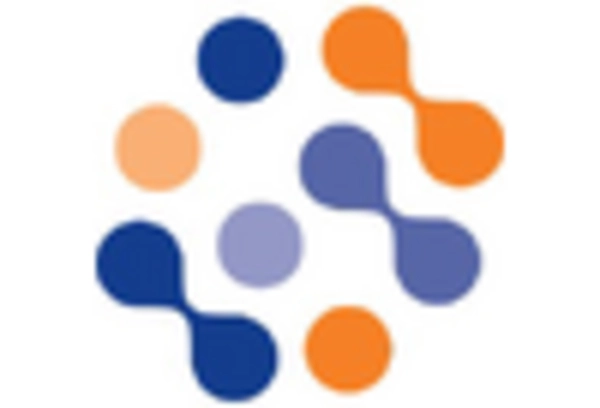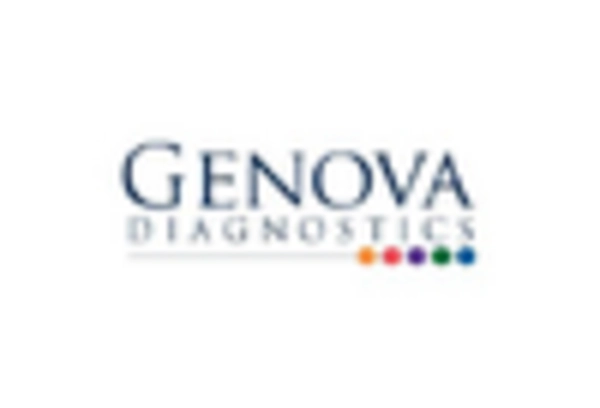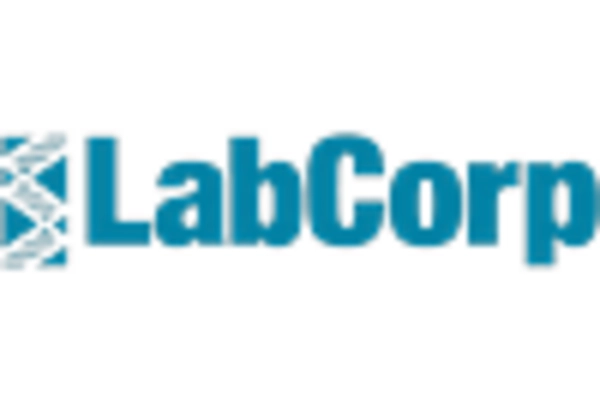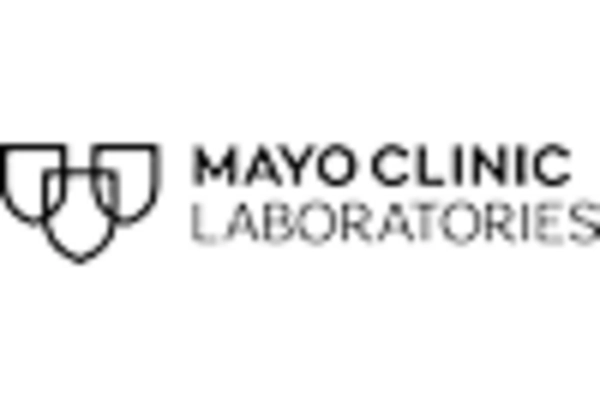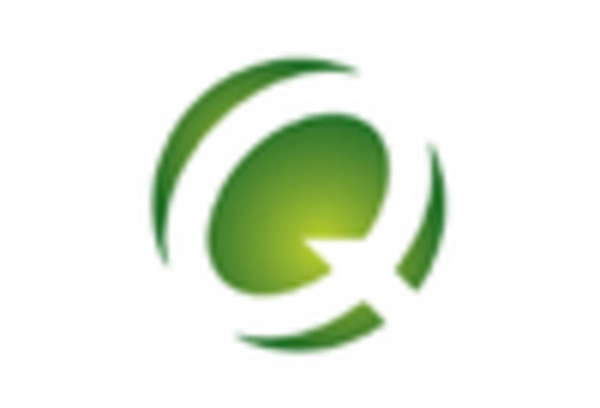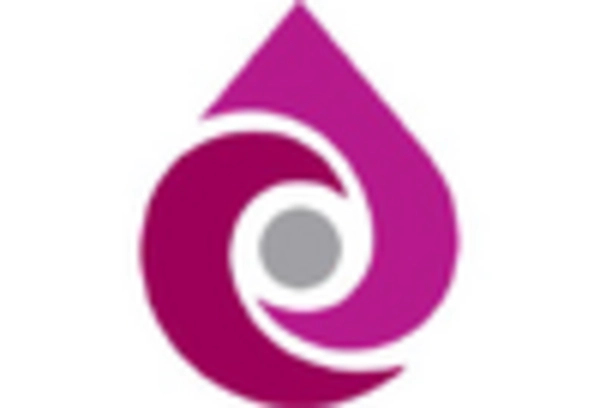Rising Demand for Home Testing Kits
The vitamin test market is witnessing a surge in demand for home testing kits, driven by consumer preferences for convenience and privacy. As individuals seek to manage their health from the comfort of their homes, companies are increasingly offering at-home vitamin testing solutions. This trend is particularly appealing to younger demographics who value technology and ease of access. In 2025, the market for home testing kits is projected to grow by 25%, indicating a shift in consumer behavior. This evolution in testing methods is likely to reshape the vitamin test market, as more people opt for self-administered tests to monitor their vitamin levels.
Increased Preventive Healthcare Focus
The vitamin test market in Japan is experiencing growth due to a heightened focus on preventive healthcare. As individuals become more aware of the importance of maintaining optimal health, there is a growing demand for vitamin testing services. This trend is reflected in the increasing number of health check-up programs offered by employers and healthcare providers. In 2025, approximately 60% of Japanese adults are expected to participate in regular health screenings, which often include vitamin level assessments. This proactive approach to health management is likely to drive the vitamin test market, as consumers seek to identify deficiencies and optimize their nutritional intake.
Aging Population and Nutritional Needs
Japan's aging population is a significant driver for the vitamin test market. With a substantial portion of the population over 65 years old, there is an increasing need for tailored nutritional solutions. Older adults often face challenges in absorbing essential vitamins, leading to deficiencies that can impact overall health. The vitamin test market is poised to benefit from this demographic shift, as healthcare providers emphasize the importance of regular testing to monitor vitamin levels. In 2025, it is estimated that the elderly population will account for over 30% of the total population, further fueling demand for vitamin testing services.
Integration of Digital Health Solutions
The integration of digital health solutions is transforming the vitamin test market in Japan. With the rise of telehealth and mobile health applications, consumers are now able to access vitamin testing services more easily. These digital platforms often provide personalized recommendations based on test results, enhancing the overall user experience. In 2025, it is anticipated that over 40% of vitamin tests will be ordered through digital channels, reflecting a significant shift in how consumers engage with health services. This trend not only increases accessibility but also encourages individuals to take a more active role in managing their health, thereby boosting the vitamin test market.
Growing Awareness of Nutritional Deficiencies
There is a growing awareness of nutritional deficiencies among the Japanese population, which is significantly impacting the vitamin test market. Educational campaigns and health initiatives have highlighted the importance of vitamins in maintaining overall health. As a result, consumers are increasingly seeking vitamin testing to identify potential deficiencies. In 2025, it is estimated that around 70% of individuals will have some knowledge of their vitamin levels, leading to a greater demand for testing services. This heightened awareness is likely to drive growth in the vitamin test market, as more people prioritize their nutritional health.


